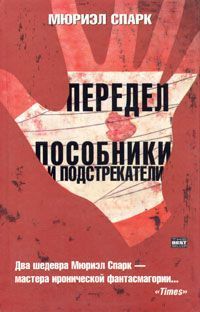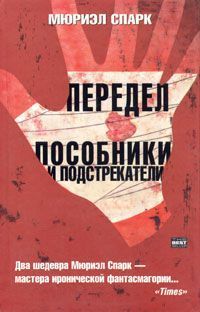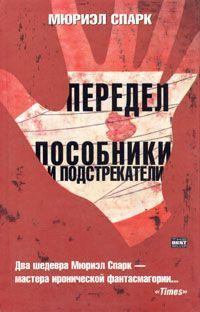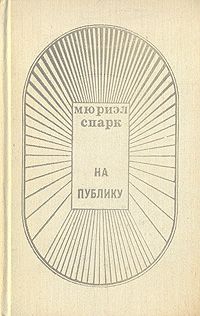Мюриэль Спарк - Английский язык с Мюриэль Спарк (рассказы)
"Oh, have they got racing cars (о, у них есть гоночные машины)?"
"No, the racing cars they are talking about don't exist (нет, гоночные машины, о которых они говорят, не существуют). Sometimes they talk about their film contracts, which don't exist (иногда они говорят о своих контрактах на съемки в фильмах, которые /тоже/ не существуют). That's why they laugh (поэтому они смеются)."
appreciation [q'pri: SI'eIS(q)n] galvanized ['gxlvqnaIzd] virtuous ['vq: CVqs]
shouting ['SaVtIN]
Richard's eyes rested with appreciation on the young noisy campers whose tents were pitched in the lake-side field. The campers were long-limbed and animal, brightly and briefly dressed. They romped like galvanized goats, yet looked surprisingly virtuous.
"What are they saying to each other?" she inquired of Richard when a group of them passed by, shouting some words and laughing at each other through glistening red lips and very white teeth.
"They are talking about their fast M. G. racing cars."
"Oh, have they got racing cars?"
"No, the racing cars they are talking about don't exist. Sometimes they talk about their film contracts, which don't exist. That's why they laugh."
"Not much of a sense of humour, have they (не ахти какое чувство юмора, не так ли; sense — чувство, восприятие)?"
"They are of mixed nationalities (они разных: «смешанных» национальностей), so they have to limit their humour (и им приходится ограничивать «их» юмор; to have +инфинитив — бытьвынужденнымсделатьчто-то, to limit — ограничивать, ставитьпредел) to jokes which everyone can understand (до шуток, которые понятны каждому: «каждый может понять»), and so they talk about racing cars which aren't there (и поэтому они говорят о гоночных машинах, которых нет)."
Trudy giggled a little (Труди льстиво хихикнула «чуть-чуть»; to giggle — хихикать, глупоилильстиво), to show willing (чтобы показать /свое/ расположение; willing — готовый, склонный). Richard told her he was thirty-five (Ричард сообщил ей, что ему тридцать пять лет), which she thought feasible (и она подумала, что это вполне подходящий /возраст/; feasible— осуществимый, возможный). She volunteered that she was not quite twenty-two (/он не спрашивал ее о возрасте/ и она сама сообщила ему, что ей около: «не вполне» двадцати двух: tovolunteer— предлагать, сделать по своей инициативе). Whereupon Richard looked at her (после чего Ричард посмотрел на нее) and looked away (и отвел взгляд), and looked again and took her hand (и посмотрел /на нее/ снова и взял ее за руку). For (так как), as he told Gwen afterwards (как он сказал Гвен впоследствии), this remarkable statement was almost an invitation to a love affair (это удивительное заявление было почти приглашением к любовной интриге).
humour ['hju: mq] nationality ["nxSq'nxlItI] feasible ['fi: zqb(q)l]
volunteer ["vOl(q)n'tIq] affair [q'fεq]
"Not much of a sense ofhumour, have they?"
"They are of mixed nationalities, so they have to limit theirhumourto jokes which everyone can understand, and so they talk about racing cars which aren't there."
Trudy giggled a little, to show willing. Richard told her he was thirty-five, which she thought feasible. She volunteered that she was not quite twenty-two. Whereupon Richard looked at her and looked away, and looked again and took her hand. For, as he told Gwen afterwards, this remarkable statement was almost an invitation to a love affair.
Their love affair began that afternoon (их любовная связь началась в тот /же/ день), in a boat on the lake (в лодке на озере), when, barefoot (когда босые), they had a game of placing sole to sole, heel to heel (они развлекались: «имели игру» и соединяли: «располагали» ступню к ступне: «подошву к подошве», и пятку к пятке). Trudy squealed (Труди визжала), and leaned back hard (и сильно откидывалась назад), pressing her feet against Richard's (прижимая свои ступни к: «против» /ступням/ Ричарда).
She squealed at Gwen (она пронзительно кричала Гвен) when they met in their room later on (когда они встретились в /их/ номере: «комнате» позже). "I'm having a heavenly time with Richard (я провожу: «имею» восхитительно время с Ричардом; heavenly — божественный, небесный, эмоц. — усилит. — великолепный, изумительный, heaven — небо/возвыш./). I do so much like an older man (мне так очень-очень нравится более взрослый мужчина; to like — нравится, любить, old-older-the oldest — старый)."
Gwen sat on her bed (Гвен села на свою кровать) and gave Trudy a look of wonder (и с удивлением посмотрела на Труди: «и дала Труди взгляд удивления»). Then she said (затем она сказала). "He's not much older than you (он не намного старше тебя)."
"I've knocked a bit off my age (я слегка скинула себе годков; toknockoff— сбивать, смахивать, age— возраст)," Trudy said (сказала Труди). "Do you mind not letting on (ты не возражаешь, если это останется между нами: «ты не будешь возражать не выдать секрет»; tomind— возражать, заботиться, волноваться, toleton— притворяться, делать вид, раскрывать секрет)?"
"How much have you knocked off (сколько же ты скинула)?"
"Seven years (семь лет)."
barefoot ['bεqfVt] squeal [skwi: l] wonder ['wAndq] knock off ['nOk'Of]
Their love affair began that afternoon, in a boat on the lake, when, barefoot, they had a game of placing sole to sole, heel to heel. Trudy squealed, and leaned back hard, pressing her feet against Richard's.
She squealed at Gwen when they met in their room later on. "I'm having a heavenly time with Richard. I do so much like an older man."
Gwen sat on her bed and gave Trudy a look of wonder. Then she said. "He's not much older than you."
"I've knocked a bit off my age," Trudy said. "Do you mind not letting on?"
"How much have you knocked off?"
"Seven years."
"Very courageous (очень смело; courageous — отважный, бесстрашный)," Gwen said.
"What do you mean (что ты имеешь в виду)?''
"That you are brave (что ты смелая; brave— храбрый, смелый)."
"Don't you think you're being a bit nasty (тебе не кажется: «ты не думаешь», что ты ведешь себя немного недоброжелательно; nasty— отвратительный, грязный, неприятный)?"
"No (нет). It takes courage to start again and again (/просто/ необходимо мужество, чтобы начинать снова и снова; totakecourage— мужаться, приободриться, не унывать). That's all I mean (это все, что я имею в виду). Some women would find it boring (некоторым это покажется утомительным: «некоторые женщины найдут это скучным»; boring— надоедливый, скучный)."
"Oh. I'm not an experienced girl at all (о, но я совсем не опытная женщина; experienced— знающий, сведущий;girl— девочка, девушка, молодая женщина)." Trudy said. "Whatever made you think I was experienced (что заставляет тебя думать, что я опытная; to make — делать, to make smb. do smth. — заставлять)?"
"It's true (это верно; true— верный, правильный)," Gwen said (сказала Гвен), "you show no signs of having profited by experience (по тебе не заметно, чтобы ты пользовалась /жизненным/ опытом: «ты показываешь никакие признаки того, что пользуешься опытом»; toshow— показывать, asign— признак, примета, toprofit— получать прибыль; приносить пользу). Have you ever found it a successful tactic to remain twenty-two (ты когда-нибудь действительно убедилась в том, что оставаться двадцатидвухлетней /девушкой/ это — успешная тактика; successful— имеющий успех, toremain— оставаться, сохраняться)?"
courageous [kq'reIGqs] nasty ['nа: stI] courage ['kArIG] boring ['bO: rIN]
experienced [Ik'spI(q)rIqnst] profit ['prOfIt]
"Very courageous," Gwen said.
"What do you mean?''
"That you are brave."
"Don't you think you're being a bit nasty?"
"No. It takes courage to start again and again. That's all I mean. Some women would find it boring."
"Oh. I'm not an experienced girl at all," Trudy said. "Whatever made you think I was experienced?"
"It's true," Gwen said, "you show no signs of having profited by experience. Have you ever found it a successful tactic to remain twenty-two?'
"I believe you're jealous (я просто уверена, что ты ревнуешь; to believe — верить, полагать, считать; jealous — ревнивый, завистливый)," Trudy said. "One expects this sort of thing from most older women (как-то ожидаешь нечто подобное от большинства стареющих женщин; to expect — ожидать, рассчитывать), but somehow I didn't expect it from you (но как-то я не ожидала этого от тебя)."
"One is always learning (век живи…: «человек все время учится»; to learn — учить, изучать),'' Gwen said.
Trudy fingered her curls (Труди теребила пальцами свои локоны; to finger — прикасатьсяпальцами, вертетьвруках, curl — локон, завиток). "Yes, I have got a lot to learn from life (да, мне многому надо научиться в жизни)," she said, looking out of the window (сказала она, выглядывая в окно).
"God (Боже)," said Gwen, "you haven't begun to believe that you're still twenty-two, have you (ты же не начала верить, что тебе все еще двадцать два, так или нет)?"
"Not quite twenty-two is how I put it to Richard (мне не совсем двадцать два — так я сказала Ричарду)," Trudy said (сказала Труди), "and yes (и да). I do feel it (я действительно чувствую это). That's my point (это моя точка зрения). I don't feel a day older (я не чувствую себя ни на день старше)."
The last day of their holidays (в последний день их отпуска; holidays— отпуск, каникулы) Richard took Trudy rowing on the lake (Ричард взял Труди с собой на лодочную прогулку по озеру; torow— грести, кататься на лодке), which reflected a grey low sky ( которое /озеро/ отражало серое низкое небо;toreflect— отражать).
"It looks like Windermere today, doesn't it (сегодня оно похоже на /озеро/ Виндермир, не так ли; Windermere— самое большое природное озеро Англии, популярное место отдыха с 1847 г.)?" he said.
Trudy had not seen Windermere (Труди /никогда/ не видела Виндермир), but she said, yes it did (но она сказала, что да, оно похоже), and gazed at him with shining twenty-two-year-old eyes (и уставилась на него блистающими глазами двадцатидвухлетней /девушки/; togaze— пристально глядеть, уставиться;shining— блестящий, сияющий).
jealous ['Gelqs] curl [kq: l] holiday ['hOlIdI]
"I believe you're jealous," Trudy said "One expects this sort of thing from most older women, but somehow I didn't expect it from you."
"One is always learning,'' Gwen said.
Trudy fingered her curls. "Yes, I have got a lot to learn from life," she said, looking out of the window.
"God," said Gwen, "you haven't begun to believe that you're still twenty-two, have you?"
"Not quite twenty-two is how I put it to Richard," Trudy said, "and yes. I do feel it. That's my point. I don't feel a day older."




